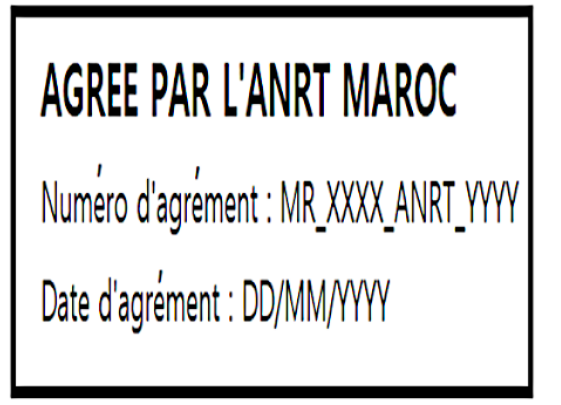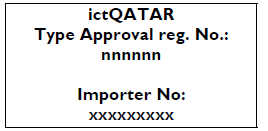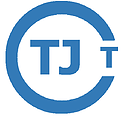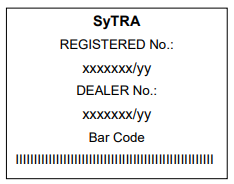Tunisia: Summary of CERT Approval process
The commercialization of telecom and radio equipment in Tunisia is based on CERT (Centre d’Etudes et de Recherche des Telecommunications) approval. CERT is the national authority in charge of the control and supervision of telecommunications affairs in Tunisia.
CERT approval is mandatory for telecom and radio products that are commercialized in Tunisia. The approval procedure of the telecommunications equipment is organized by the following laws and decrees: Law No 2001-1 of January 15th 2001 and Decree n ° 2020-48 dated 23 January 2020.
CERT type approval is based on the preparation of all required documentation and samples and providing them to CERT to be reviewed. Assessment and in-country testing is performed by the Authority itself. After the assessment, CERT issues a Certificate of Conformity with permanent validity.
The lead time to obtain CERT approval is typically 8 weeks. A Local Representative is required to apply for this certification scheme.
Tunisia CERT Label Requirements
CERT Radio Type Approval does not have labelling requirements for products certified under the CERT Scheme.
Morocco: Summary of ANRT Approval process
Radio frequency transmitter and receiver products that make use of the radio spectrum or connect to the public network, and that are intended to be marketed in Morocco, are subject to a mandatory approval process issued by the Agence National de Réglementation des Télécommunications (ANRT).
In-country testing is not required to address the ANRT Approval. The ANRT testing activities conducted to verify conformance with type approval requirements are based on RED or FCC test reports, which can only be performed by laboratories accredited by national accreditation bodies. Additionally, the certificate of approval (EU Type Examination Certificate/FCC Grant) must also be part of the technical file.
The typical lead time to obtain the ANRT Approval and the ANRT Certificate is 4 weeks and has a 10-year validity period.
Morocco ANRT Label Requirements
The ANRT Label must be affixed as shown below:

The specific approval number given by the Certificate of Approval must be included on the label itself, as well as the approval date.
The size of the label can vary depending on the dimensions of the equipment.
Qatar: Summary of CRA Approval process
The commercialization of telecom and radio equipment in Qatar is based on CRA (Communications Regulatory Authority) approval. CRA is the national authority in charge of the control and supervision of telecommunications affairs in Qatar.
The Communications Regulatory Authority (CRA) is the Communications Regulator in the state of Qatar established by virtue of the Emiri Decree (42) in 2014.
The Eevidence of compliance with the Regulations must be based on duly signed and dated Test Reports issued by accredited Test Laboratories demonstrating that the product complies with the appropriate technical standards.
An International Manufacturer is not required to have a presencebe present in Qatar in order to apply for Type Approval. The approximate lead-time for the Standard Type Approval process is 6 weeks. The validity period of the CRA Type Approval is Permanent.
CRA Label Requirements
All Type Approved equipment must have a legible label permanently affixed to the outside of such equipment, bearing the label approved by the Authority, as seen below:

The label must be affixed before the product is made available on the Qatari market.
Yemen: Summary of MTIT Approval process
The commercialization of telecom and radio equipment in Yemen is based on the MTIT (Ministry of Telecommunications and Information Technology) approval. MTIT is the national authority in charge of the control and supervision of telecommunications affairs in Yemen.
MTIT does not have specific technical standards. Approval is based on review of foreign standard test reports. They accept the EU RED Directive compliance reports and CE DoC as evidence of compliance. A Local Representative is required for the MTIT approval.
The typical lead time to obtain the MTIT approval is 8 weeks. Certificates issued by MTIT are valid for 1 year, and must be renewed on an annual basis as long as the product is imported and/or sold in Yemen. If the product is modified from the original submitted design, the updated product must be resubmitted for approval, and cannot be shipped into the country until a new certificate has been issued.
Yemen MTIT Label Requirements
There are no labelling requirements for telecom and radio products in Yemen related with MTIT approval.
Tajikistan: Summary of TAJIKSTANDARD Approval process
Type Approval for Radio Communication and Telecommunications Products that are intended to be marketed in Tajikistan is based on TAJIKSTANDARD Approval.
Radio frequency transmitter products that make use of the radio spectrum or connect to the public network and are intended to be marketed in Tajikistan are subject to a mandatory approval process issued by TAJIKSTANDARD or an accreditation body based in Tajikistan.
The State Agency for Standardization, Metrology, Certification and Trade inspection (TAJIKSTANDARD) under the Ministry of Trade and economic Republic of Tajikistan (TAJIKSTANDART) is Tajikistan’s official regulatory body and their main role and responsibility is determining the is the regulations and relevant procedures that must be followed in order to comply with conformity assessment in Tajikistan.
A Local Representative is required to hold the Certificate and, in-country testing is not required if when having available international ISO 17025 accredited test reports have been obtained. TAJIKSTANDARD Certificate of Conformity has a 1-year validity period and the tTypical lLead tTime to obtain this certification is 5 weeks.
TAJIKSTANDARD Label Requirements
When equipment that is intended to be marketed in Tajikistan has proven compliancecomplies with Conformity Assessment requirements and has been issued a Certificate of Conformity by an accredited certification body, the applicant will be allowed to affix the official Label according to TAJIKSTANDARD requirements.
The cConformity label is a combination of three letters: “T”; “J” ; “T”. The label’s base size must be equal or greater than 1 mm.

Moreover, for Low-voltage equipment, the following documentation information must be indicated included oin the product and accompanying the documentation, in Tajik and/or Russian language:
- Name and/or designation of low-voltage equipment (type, brand, model)
- Main parameters and characteristics affecting safety
- Name of the country where the low-voltage equipment wasis manufactured
- Characteristics and electrical parameters (rated voltage, power and frequency)
If the information cannot be included on the product itself, it may be included in the accompanying product documentation.Given the case that it is not possible to include the information in the product, it can be indicated in the accompanying documents only.
Ghana: Summary of NCA Approval process
NCA approval is mandatory for telecom and radio products that are commercialized in Ghana. NCA type approval is based on the preparation of a technical file with all required documentation and providing this documentation to NCA for further review and assessment.
The National Communications Authority (NCA) was established by an Act of Parliament, Act 524 in December 1996, which has recently been repealed and replaced by the National Communications Authority Act, 2008 (Act 769). The Authority is the statutory body in charge of licensing and regulating electronic communication activities and services in the country.
A Local Representative is required to apply for NCA Approval. Manufacturers and consultants not present in the country must apply for Type Approval through an authorized local agent. The approval itself is based on European Standards, therefore it is required to fulfil the requirements of the RED 2014/53/EU beforehand.
The NCA Approval process can take up to approximately 8 weeks. The validity of the Certificate of Conformity is permanent.
NCA Label Requirements
All communications equipment that has been type approved must have an approved NCA mark on it. The mark can be physically etched on the device (H-Marking) or be digitally included via software (E-Marking), accessible and visible when the device is powered up. This is recommended for devices with small form factor.

The mark may also be affixed to the packaging and/or be included in the user manual, although this is only mandatory if due to the size or design of the product, it cannot be affixed to the product itself.
KUWAIT: SUMMARY OF CITRA APPROVAL PROCESS
Radio frequency transmitter equipment intended to be commercialized in Kuwait that makes use of the radio spectrum is subject to a mandatory approval process conducted by CITRA.
The Communication and Information Technology Regulatory Authority (CITRA) is the national body in charge of regulating and controlling sectors such as telecommunications, post and electricity in Kuwait.
Kuwait’s compliance testing activities with Type Approval requirements are based on ETSI (EU) test reports. Additionally, the EU-Type Examination certificate of approval must also be part of the technical documentation submitted to CITRA.
The CITRA Certificate is valid for 3 year and the typical lead time to obtain approval is approximately 6 weeks.
CITRA LABEL REQUIREMENTS
There are no product marking requirements for the CITRA approval.
ANGOLA: SUMMARY OF INACOM APPROVAL PROCESS
Radio frequency transmitter and receiver products intended to be commercialized in Angola that make use of the radio spectrum are subject to a mandatory type approval process issued by INACOM.
The Instituto Angolano das Comunicações (INACOM) is the Angolan state agency in charge of the regulation, supervision and control of telecommunications equipment in Angola.
Angola’s compliance testing activities with Type Approval requirements are based on RED and/or FCC test reports. The certificate of approval, either the EU-Type Examination Certificate or the FCC Grant, must be part of the technical documentation submitted to INACOM.
The INACOM Certificate is valid for 1 year and the overall approval process can take around 5 weeks.
INACOM LABEL REQUIREMENTS
There are no product marking requirements for INACOM’s approval.
KENYA: SUMMARY OF CA RADIO/TELECOM TYPE APPROVAL PROCESS
Radio frequency transmitter products intended to be marketed in Kenya that make use of the radio spectrum or connect to the public network are subject to a mandatory approval process issued by the CA.
The Communications Authority of Kenya (CA) is the regulatory authority for the communications sector in Kenya. CA’s duty is to determine the rules and guidelines to be applied as well as ensuring their compliance in Kenya.
Generic SRDs are exempt from type approval by Kenya’s CA. However, SRDs must not surpass frequency bands’ maximum permitted output power, which is equivalent to that specified in EU regulations. A voluntary Letter of No Action (LoNA) can be obtained for customs clearance.
It is important to note that a sample is required for smartphones, tablets and laptops in order to properly apply for type approval in Kenya. For other types of devices no samples are required to obtain CA’s approval.
Kenya’s compliance testing activities with type approval requirements are based on ETSI (EU) test reports. Additionally, an EU-Type Examination Certificate must also be part of the technical documentation submitted to the CA. Once testing has been successfully performed and documentation duly completed, applicants must apply for a provisional type approval certificate which will be valid for 6 months. After the CA reviews the application and determines whether the equipment is compliant with technical and regulatory requirements, applicants must apply for a permanent type approval certificate.
A Local Representative is required to hold a Certificate of Conformity issued by the CA. The CA’s permanent Certificate is indefinitely valid and the typical lead time to obtain it is approximately 7 weeks.
CA PRODUCT MARKING
Every supplier, importer and distributor must ensure that all equipment offered for sale or private use has a valid type approval or type acceptance certificate issued by the Commission. Additionally, a type approval label issued by a recognized Commission must be affixed to it and contain the following information:
- Supplier’s/manufacturer’s name or identification trademark
- Equipment’s commercial name, model name and serial number
- The logo of the Commission
- The alphanumeric equipment identification number (certificate number issued by the CA)
SYRIA: SUMMARY OF SyTRA APPROVAL PROCESS
Radio and telecommunication products intended to be commercialized in Syria that make use of the radio spectrum or that connect to the public network are subject to a mandatory approval process issued by the SyTRA.
The Syrian Telecommunications Regulatory Authority (SyTRA) is the body responsible for regulating and ensuring a proper use of the radio spectrum by telecommunications services in Syria.
Syria’s compliance testing activities with type approval requirements are based on RED 2014/53/EU test reports.
A Local Representative must be registered as a dealer through the SyTRA in order to hold the SyTRA’s Certificate of Conformity.
The SyTRA’s certificate has a 3-year validity period and the typical lead time to obtain approval is approximately 8 weeks.
SyTRA LABEL REQUIREMENTS
Once the SyTRA’s certificate has been granted, the following label must be affixed to the equipment and include the required information shown in the image below:

In case the label cannot be affixed to the equipment due to its dimensions or nature, it must be affixed to the packaging.
The label must be affixed before the product is made available on the Syrian market.
IRAN: SUMMARY OF CRA APPROVAL PROCESS
Radio frequency transmitter and receiver products intended to be marketed in Iran that make use of the radio spectrum or that connect to the public network are subject to a mandatory approval process issued by the CRA.
The Communications Regulatory Authority (CRA) is the body responsible for regulating and supervising the Radio and Communications sector in Iran.
When applying for type approval evaluation, at least one sample must be sent to the CRA. Moreover, Iran’s compliance testing activities must be performed by local laboratories recognized by the CRA.
A Local Representative is required to hold the CRA’s Certificate of Conformity.
The CRA certificate has a 3-year validity period and the typical lead time to obtain approval is approximately 12 weeks.
CRA LABEL REQUIREMENTS
A label including the following information must be affixed to the equipment:
- Equipment model
- Brand of the equipment
- Country of origin (country where the device will be imported from)
The above-listed information must be affixed to the equipment before samples are submitted and evaluated by the CRA.
MADAGASCAR: SUMMARY OF ARTEC APPROVAL PROCESS
The approval of radio/terminals intended to be connected to the various telecommunications networks in Madagascar is the exclusive responsibility of ARTEC.
ARTEC, which stands for Communication Technologies Regulatory Authority, is a public, industrial and commercial establishment.
In Madagascar, any radio device or equipment intended to be connected to a public network must be approved either by the regulatory agency or by a laboratory which is authorised by the regulatory agency. The average lead time for obtaining the ARTEC approval is 3 weeks.
ARTEC LABEL REQUIREMENTS
ARTEC has no labelling requirements for the Type Approval.
MOZAMBIQUE: SUMMARY OF INCM APPROVAL PROCESS
The commercialization of telecom and radio equipment in Mozambique requires INCM (Instituto Nacional das Comunicações de Mozambique) approval.
INCM is the agency in charge of the regulation, inspection, sanction and representation of the postal and telecommunications sectors, as well as the management of the radio frequency spectrum in Mozambique.
Mozambique’s compliance testing activities with Type Approval requirements are based on RED and/or FCC test reports. The certificate of approval, either the EU-Type Examination Certificate or the FCC Grant, must be part of the technical documentation submitted to INCM.
The INCM Certificate has a validity of 8 years and the typical lead time to obtain approval is approximately 6 weeks.
INCM LABEL REQUIREMENTS
There are specific product marking requirements for INCM Type Approval. The approval label must contain the logo of the regulatory authority, approval code or bar – code or other electronic coding mechanisms.

CHXXXX-YYYY
The homologation label must have the following format: CHXXXX-YYYY, where:
- CH: homologation code
- YYYY: year of the homologation
- XXXX: sequential number issued by the Authority
